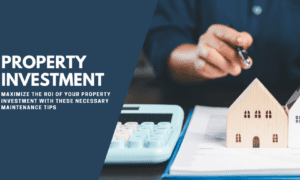Property contracts fall through more often than we realize. According to a study completed in 2017, as many as 3.9% of real estate contracts never make it across the finish line, while 75% of sales had contingencies attached — increasing failure risks exponentially. To make matters worse, many of these numbers are averages; some metros, including Ventura County, CA, have contract failure rates of 11% or more.
These numbers don’t come as a surprise. Joshua Freed, CEO of the private lending company Equity Capital, says that inconsistencies with real estate are just another part of life. “Everything about the development industry is a guessing game,” he says. “I’m not saying you need to expect the worst, but you do need to be prepared for pretty much any outcome.”
Freed believes most real estate deals fall apart due to external factors. However, he notes it’s still possible to avoid or overcome challenges with the right kind of information. We sat down with Freed to discuss this in greater detail, asking questions about why real estate deals fall apart and how prospective buyers can navigate problems before they occur.
Whether you’re a fledging developer or a seasoned investor, understanding the pitfalls of property contracts could save you from some seriously sticky snafus. From unexpected appraisals to uncertain financing, here’s everything you need to know about why real estate deals go south — and how you can prevent them in the first place.
1. Bad Inspections
Inspections are one of the most important contingencies in your real estate contract. If something concerning is found about the property (think leaky roofs, termites, or shifting foundations), it will be up to the seller to repair the damage. If they refuse to provide you with credits or fix the issue themselves, you’re free to exit the contract without penalty.
There’s really no way to avoid a bad inspection. However, picking properties with a lower likelihood of problems is an excellent idea. Try avoiding beach houses or vintage properties on your first few deals, and don’t purchase from areas with a history of flooding.
2. Volatile Appraisals
Appraisals can make or break your pending contract. If the price difference between the appraisal and the seller is only a few thousand dollars, you and the owner may still be able to reach an agreement. However, if the tag is much higher or lower than expected (i.e., $10,000+-), your deal may come to a grinding halt.
If possible, try to purchase properties that have pre-listing appraisals. You may also want to consider an appraisal gap coverage clause on your final contract.
3. Unexpected Circumstances
As nebulous as ‘unexpected circumstances’ may sound, uncertain factors contribute a significant amount of risk to real estate deals. For example:
- Global pandemics affecting the economy
- Closing documents requiring adjustment
- Personal or professional concerns
It’s not possible to plan for unexpected circumstances. That’s why they call them ‘unexpected!’ However, you may still want to beef up your emergency fund, perform market analysis, and remain agile in the marketplace — just in case.
4. Shaky Financing
Finding the right funding for your real estate deal may be more complex than you’d think. If you don’t have enough or are managing lots of contingencies, it may be harder to close the deal. In a worst-case scenario, you won’t be able to buy at all.
There are a few ways to avoid this:
- Make sure your financials are strong before applying for a loan
- Choose a lender with a history of fast responses and reliability
- Select a loan type that works with your situation (SBA financing, CRE bridge, etc)
Chat with a lender to learn more about your options.
5. Analysis Paralysis
Buyer’s remorse is a common part of the real estate buying process, but analysis paralysis is by far the biggest culprit of ruined deals. Stalling out on a deal allows other buyers to get in the way, causing you to lose your potential investment. Worse, it may force you to offer a higher sum to remain competitive.
Be sure you can recognize the signs of buyer’s remorse prior to closing a deal. Ask yourself: am I ready to make this commitment? How can I think rationally about this?
How To Avoid Becoming A Statistic
The rate of broken real estate deals continues to rise in the United States. However, knowing the signs and failure and doing what you can to combat them is a surefire way to protect your interests. Sidestep what you can with good planning and foresight, and prepare for what you can’t by stocking away extra funds and bracing against the wind.
For Freed, the most important element of sealing a real estate deal begins and ends with good advice. “Mentorship never goes out of style,” Freed says. “Partnering with the best and learning from others is the single best way to sidestep the pitfalls of contract failure. Walk in wisdom, tread with caution, and I guarantee that you’ll find your way.”
About Joshua Freed
Joshua Freed engages a team of highly skilled professionals in his organization, Equity Capital Inc, where he serves as CEO. Mr. Freed has dedicated his life to public service and is passionate about giving back. He has traveled to Kenya to install wells and build a medical center, and he has helped build homes in the restoration efforts after a significant earthquake in the Philippines. He is active in his community and enjoys fly fishing with his family.



































